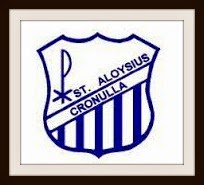While the host school might not use the term Professional Learning Community, can you describe how they are using PLC principles?
How are they using data to inform decision making?
We have seen evidence today of primarily two areas from our CLF.
- a culture of learning that builds capacity to deepen insight and meaning
- a learning community built on strong partnerships that connect, challenge and collaborate
St Joseph's are using data as we do to identify the day to day individual learning needs of students and also to inform forward projectionse for learning needs. The teachers are then supported with professional development where required and lead the implementation of program's designed to move students forward. Program's they have introduced over time in addition to reading recovery include
- fast forword - a program that develops the neuroplasticity of the brain and develops and strengthens memory, attention, processing rates and sequencing
- mini lit - designed to support students from Kindergarten but used today to support students at risk in year 2
- multilit - a prescript evidence based program teaching reading skills
Funding to meet the costs of these programs is on a 50/50 basis with the parents. An affluent school community is able to achieve some things that could well be impossible for schools of a different demographic.
Data is also used where gaps are identified through Naplan and PAT testing to skill teachers as classroom practitioners. St Jospeh's data has shown that there is a need to focus on forward growth to extend student learning in numeracy consistent with their growth in literacy.
A whole school initiative was implemented with teachers beginning action research projects. Each teacher is required to formulate a critical practitioner inquiry question that is based on Numeracy and specifically relates to their own class for that year.
Teachers gather twice a term in teams (similar to PLTprinciples) (K-3) (4-6) and discuss progress made on the inquiry questions and also to assist each other with reflection on their own practice, what might or might not be working.
The K-2 teachers also use this same inquiry based question and work within a Learning Hub that involves 5 schools from the area. Through the year these Learning Hubs meet and discuses their inquiry question and also visit each other's classrooms to see the learning taking place. Feedback is give and discussed regularly between the Learning Hubs.
A year 2 student taking part in a mini lit session.



















Hi Anne-Maree, What are some examples of the inquiry questions they use for professional learning? Are they very specific or broad?
ReplyDeleteHi Alanna
DeleteThe action research they are undertaking in kinder is titled 'How can data and documentation be used to provide effective learning opportunities for Kindergarten students in number?'
They have defined as part of the research the
- classroom situation
- questions of inquiry
- links to early year principles
- what will you see in the classroom
- what they want to look at
Their questions are as follows
- are the learning activities appropriate for a range of learners?
- are all students actively engaged?
- are students recording/displaying their work in a variety of ways?
All year levels have their own research topic, all linked to maths and questions they are interested in measuring so for eg. In year 5 they have a gender question. I will bring home some of the project outlines they are really interesting.
Hi Anne Maree
ReplyDeleteIf you were thinking of something like this as a process for yourself and your colleagues what would the biggest challenge be in our setting?
I like to focus
Ann